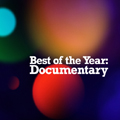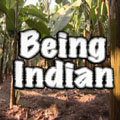"Being Indian" is the Champ
 If you follow BBC World, then you would have noticed that it gave its viewers the opportunity to select their favorite documentary programme for this year. Viewers voted for the same and the UNICEF-funded film, 'Being Indian' was voted BBC World 'Best Documentary'.More here and here too.
If you follow BBC World, then you would have noticed that it gave its viewers the opportunity to select their favorite documentary programme for this year. Viewers voted for the same and the UNICEF-funded film, 'Being Indian' was voted BBC World 'Best Documentary'.More here and here too. What is it to be Indian today? An engineer in hi-technology urban India, a farmer in the ruralscape, a classical musician, a bus driver, an auto wala, petty shop owner in a slum, high-flying journalist, college students sipping coffee in Barista,or a worker in the burial grounds of the Ganges or a WCRR 'White Collar Richie Rich' ? It is so many things to be Indian in modern India,the bright spots and the dark spots that are not easy to grasp.
What is it to be Indian today? An engineer in hi-technology urban India, a farmer in the ruralscape, a classical musician, a bus driver, an auto wala, petty shop owner in a slum, high-flying journalist, college students sipping coffee in Barista,or a worker in the burial grounds of the Ganges or a WCRR 'White Collar Richie Rich' ? It is so many things to be Indian in modern India,the bright spots and the dark spots that are not easy to grasp. I saw a small snippet of the video here (If your broadband speed is not that great,be a bit patience and it is a bit lengthy but worth a try.) and I feel the maker of the documentary wants to explore what it is to be Indian in modern India through the eyes of a child from rural India. We need to fix a wide spectrum of issues, before we can brand ourselves as a developing nation accelerating on the path to be a developed one. "Being Indian" is about lives of four children coming from very different social backgrounds in a country that is about to touch the double digit growth rate for the first time in its history and where half its population is under the age of 35.
The first part of Being Indian explores the life of a family involved in the work of cremation on the banks of the Ganges through a young, "untouchable" boy from Patna, nine-year-old Biru Mallik. It looks at how cremation is the habitat of the boy and the family. The second part is about a wealthy middle-class family in Delhi seen through the eyes of a 15-year-old girl Isha Dua who goes to an elite public school. It looks into her everyday activity, her friends and a project they take up on slums in Delhi. The third part looks at a seven-year-old girl Sanju Benia hailing from a remote tribal family in Orissa. Sanju, like Biru, is an "untouchable" too but comes from a tribal setting. The "untouchability" in tribal Orissa contrasts with "untouchability" on the Ganges. The fourth part explores the life of 12-year-old Renuka Yenkoba in a village in Karnataka. Renuka, who works in the fields to support her family, is on the verge of marriage. This part looks at child marriage in an agrarian setting.
At a high level, it shows the contrast of an urban middle-class and a remote rural/tribal India thorough the lens of children. The movie clearly sends the message that Being Indian is not only about high technology, swanky shopping malls, faster connectivity in terms of life, transport and communication and a wide myriad of other changes in urban India we see today. It is also about people who work in burial grounds, live in remote tribal areas, face "untouchability" or child marriage in modern India.
The crux is we ignore these bare realities and it is one side of the coin and the other being the optimistic grow rate and other flourishing and positive outcomes in the Indian societal,economy centric,socio-economic landscape.
Check out for the telecast on BBC 30th December at 1430 GMT. More details here .Don't miss it.
Which form of India do you like? I am sure most of the people who would be reading this belong to the educated, liberal and on the move class of the Indians. But at times in the midst of our own lives and its activities, we forget that we may be galloping fast in the attainment of the economic goals but we still have a big homework to do on another front. That’s the front where 70% of our nation lives and has its share of maladies. Change is the spice of life and indeed it is.I haven't read this edition of "Outlook" dated 25th Dec'06 magazine yet,just saw that in my mail box yesterday.But the cover page says how in India's jungles,remote hills, dusty plains few specialist doctors have sacrificed all they had to spread hope. That’s a challenge for sure.
My free tip, try these two books: (India Unbound and Elephant Paradigm both by Gurcharan Das, a Harvard University grad and who was CEO of Procter & Gamble India before he took early retirement to become a full time writer.) to have a wholesome understanding of what India is today and its swaying through the crest and the trough, the hurrahs and the pitfalls in the cycle of its journey.
Keep reading and remain connected.

0 Comments:
Post a Comment
<< Home